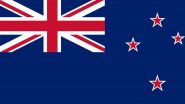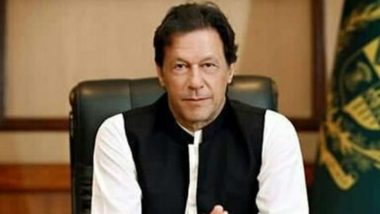Pakistan will go to the International Monetary Fund and friendly countries for financial help to avert a looming balance of payments crisis, the country's Prime Minister Imran Khan announced on Wednesday.
Khan said the current account deficit was about $18 billion. “We do not have enough dollars to pay the instalments of our loans,” he said in a speech. “We debated and decided to go both the IMF and countries which are our friends (Saudi Arabia and China).”
Pakistan's foreign currency reserves dropped by $627m in late September to $8.4m, the largest weekly drop in years that left barely enough to cover sovereign debt payments due through the end of the year.
And its public sector debt stands at $75.3 billion - which is 27 percent of Pakistan's gross domestic product.
A balance of payments deficit means the country imports more goods, services and capital than it exports. It must in turn borrow from other countries to pay for its imports.
Pakistan’s Finance Minister Asad Umar posted a video on Twitter explaining the government’s rationale to meet the IMF for talks but did not specify how much in emergency financing the government would seek. He had earlier said the government would need at least $8 billion to meet external debt payments through the end of the year. "It's a big challenge, it's not easy, everyone knows that these are difficult decisions," said Umar.
Since taking power, the PTI government had reiterated that it would explore multiple avenues in order to bring back a destroyed economy to stabilisation point. - @Asad_Umar pic.twitter.com/9mRJT4DmNH
— PTI (@PTIofficial) October 8, 2018
"We have to break this cycle of going to the IMF," he added. "We will face the pain now, but after this, we have to work towards such an economy that can stand on its own two feet."
Prime Minister Khan had on Sunday hinted at approaching the IMF for “bridging loans” during the critical phase the country is passing through, besides exercising options like seeking help from friendly countries to deposit funds in the State Bank to boost reserves.
The government decision to seek a bailout programme comes at a time when the IMF has concluded that the country faces significant economic challenges, with declining growth, high fiscal and current account deficits, and low levels of international reserves. It has found recent policy measures to be in the right direction, but not yet sufficient. It wants decisive policy action and significant external financing to stabilise the economy.
The IMF also warned the new government that growth would likely slow and inflation rise further if there is no action.
If an assistance package is agreed on, it would be Pakistan's second IMF bailout in five years and its 13th since the late 1980s.
(The above story first appeared on LatestLY on Oct 11, 2018 07:43 AM IST. For more news and updates on politics, world, sports, entertainment and lifestyle, log on to our website latestly.com).













 Quickly
Quickly




















